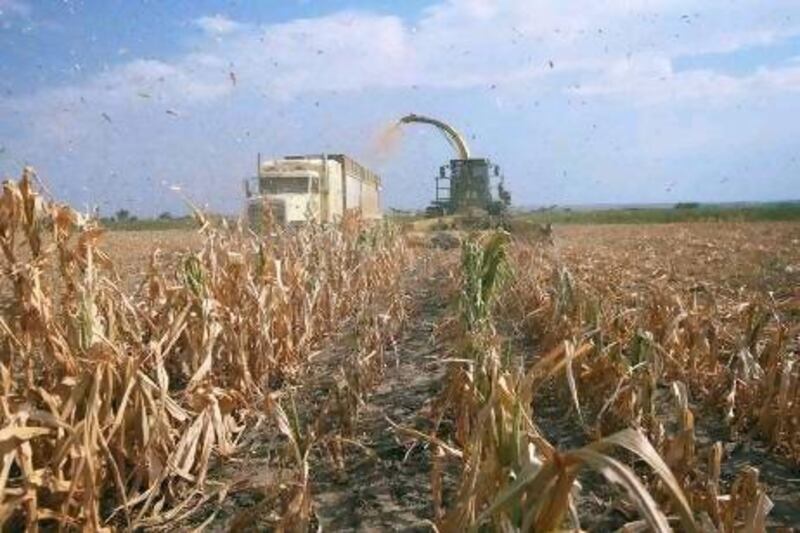Food prices in the UAE are likely to soar because of sharp increases in the global cost of maize, wheat and soybeans.
The World Bank warned in a report this week that the cost of such key grains had shot up by a "historic" 25 per cent in July alone with the Middle East listed as a region particularly vulnerable to price increases because of its reliance on imports. Furthermore, the price of soybeans jumped by 17 per cent to stand at an all-time high.
The US drought has largely been blamed for the increases.
Overall, global food prices had risen by 10 per cent in a month, the bank reported. Rice was the only staple to decrease, by 4 per cent.
Although the UAE has set fixed prices for many food staples, increases on such a scale will be almost impossible to ignore.
"Countries in the Middle East and North and sub-Saharan Africa are most vulnerable to this global shock," the bank said.
"They have large food import bills, their food consumption is a large share of average household spending, and they have limited fiscal space and comparatively weaker protective mechanisms."
Stephan Riekert, the director of transaction banking at Standard Chartered Bank in Dubai, blames most of the increases on the severe drought that has hit corn belt states in the US.
"Corn is used in so many things including feedstock for animal products in poultry and beef, so all those prices will consequently increase," Mr Riekert said. "Once maize starts increasing, other grains follow suit because they are substitutes to corn, so they will increase in price naturally."
The UAE imports a range of foods from the US. Residents as well as local businesses have felt the pinch.
"The price of vegetables, meat and seafood have increased," said Mohamed Al Awadhi, the Emirati owner of the Green Olive restaurant in Dubai. "Raw materials like herbs cost more now than last year and we can't change our prices every two or three months."
Other companies are dealing with the same problem.
"Meat, fish and vegetables have increased in price, some have even doubled since last year," said Sven Mostegl, a consultant for the Dubai catering company Professional Food Solutions. "Vegetable oil increased by 25 to 30 per cent while tomatoes and peppers doubled in price, from Dh5 to almost Dh10."
Although his business does not buy a lot of grains or corn, Mr Mostegl said traders and supermarkets were selling food at higher prices.
"This is because our resources are diminishing," he said. "This applies to corn, sugar and flour, because it's a dry time for Russia and the US, and it will only get worse until the end of the year."
Even when the rains do return to the US and Eastern Europe, it will take time to alleviate prices.
"You still have a bit of a backlog because the surplus isn't there to make up for the shortfall this year," Mr Riekert said. "So it will take two seasons to get out of it."






